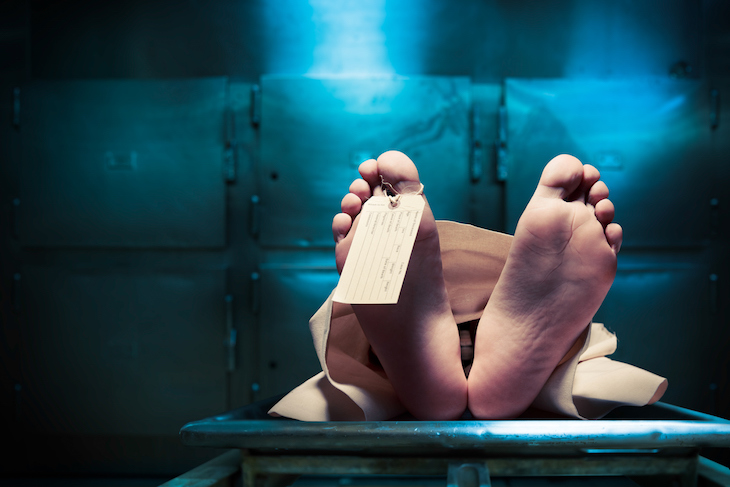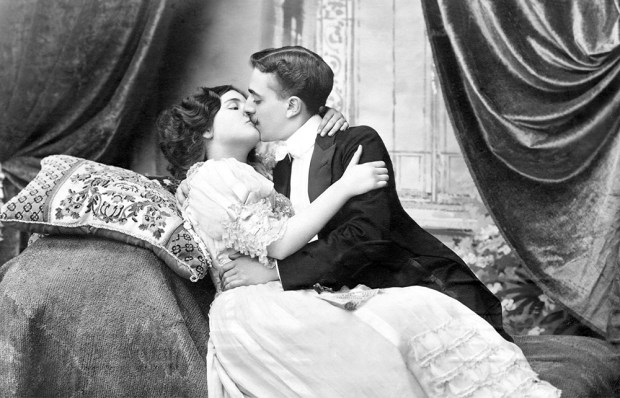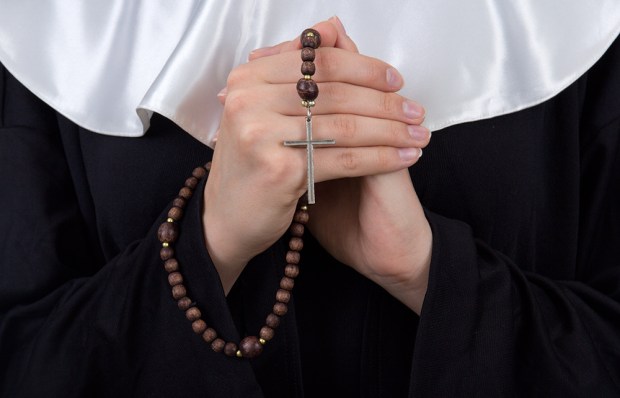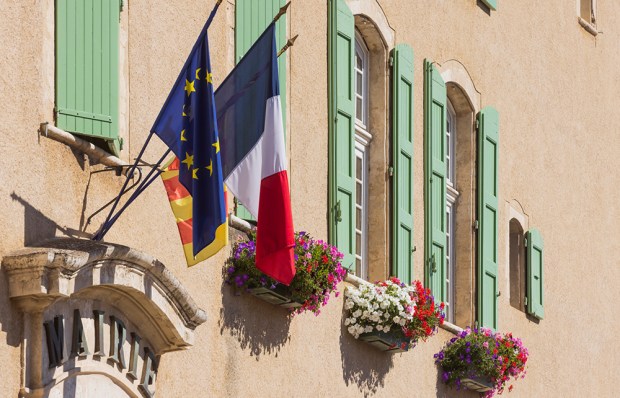I took a dab of antiseptic gel and rubbed my hands together. ‘Alone tonight, sir?’ said the charming head waiter. I was, I said. For the sake of conviviality, he seated me opposite the only other lone diner in the ship’s restaurant, a chap in his mid-sixties with his head in a book. This bookish loner had a jutting Mr Punch chin and an old-fashioned lothario’s pencil moustache. A few hours earlier, I’d noticed him prowling the deck wearing only a minuscule pair of leopard-skin print bathing drawers and a sea captain’s hat. We shook hands and exchanged Christian names. Gunter hailed from Germany but spoke basic English.
I asked him what his book was about. ‘It is about life after death,’ he said. He was disinclined to elaborate, but willing to initiate a conversation about death. ‘And was your grandfather killed in the first world war?’ he said. No, I said. He was only wounded — shot in the leg near Ypres. And your grandfather, I asked? Was he killed? ‘No, no,’ he said. ‘My grandfather was only a regimental tailor. At Verdun. He mended the broken uniforms.’ I pictured his grandfather pedalling away on his sewing machine in a dugout, then ventured that my grandmother’s brother was killed by a direct hit from a shell on the Somme. ‘The headmaster at my first school lost his arm at the Somme,’ said Gunter. ‘He was kicked by a horse and the arm was destroyed and the surgeon had to cut it away. Have you ever seen an amputation? Or perhaps a dissection of a dead person?’ Alas no, I said. ‘And would you like to see a photo of a dissection? I have one in my cabin. One moment. I will bring it.’
He rose from the table. While he was away, a waiter appeared with a menu and took my order for asparagus soup followed by the stir-fried pork. A minute later, Gunter returned to the table, with the photo buttoned into the breast pocket of his country and western-style shirt. He unbuttoned the flap, took out the photo and passed it across. ‘I was in Thailand,’ he explained. ‘I just walked into the university, found the dissection room and nobody said anything.’ The photo showed a hideously bloated, flayed corpse face-down on a table. A young student was leaning over it and making a careful incision in the neck. I congratulated him on his audacity. ‘That was 20 years ago. I also have something else,’ he said, unbuttoning the other breast pocket.
This second photo showed what looked like a ball of fire. Gunter invited me to guess what it was. I admitted defeat. ‘It is a cremation. You know what is a cremation? I was lucky. One day, a friend who works in a crematorium allowed me to look into the oven and watch as the body burned. I saw the hair burn and then the skin and then the skull. I put my head so close to the opening that my own face was burnt.’ The grave face with the pencil moustache suddenly lit up with a radiant smile. The alteration in his appearance was so great that I laughed.
‘And have you ever been to the Royal College of Surgeons?’ he said, grave again. A third photograph appeared. This one showed a child with a head grotesquely swollen with encephalitis, upright and naked in a jar of preserving fluid. ‘I was lucky. I wrote a letter to gain permission to view these exhibits. But you now have to pay, I believe.’
Everyone suddenly broke into song. Another birthday. A procession of waiters, their leader toting a guitar, the second one a flaming cake, were homing in on the birthday girl. Those passengers who were cruise ‘repeaters’ had attended a champagne reception before dinner and tonight ‘Happy Birthday’ was rendered with a kind of hooligan gusto.
Had he ever seen anyone die, I said? He studied the tablecloth for a second, then said, no, he had not. But he had once rushed to view the remains of an aunt hit by a train at a level crossing. ‘There was almost nothing left,’ he said sadly. A subsequent attempt to view a suicide hit by a train — no relation this time — had resulted in failure and a caution from the police. And last year he had put on a white coat and pretended to be a medical student at an autopsy class at his local medical school in Germany. This, too, had resulted in his being cautioned by the police.
It’s always the same. Before you go on a cruise, you picture the sun and the blueness of the sea, and maybe the white beaches and the iced drinks. But once aboard, the various personalities you encounter at the dinner table obliterate everything else.
Got something to add? Join the discussion and comment below.
Get 10 issues for just $10
Subscribe to The Spectator Australia today for the next 10 magazine issues, plus full online access, for just $10.
You might disagree with half of it, but you’ll enjoy reading all of it. Try your first month for free, then just $2 a week for the remainder of your first year.















Comments
Don't miss out
Join the conversation with other Spectator Australia readers. Subscribe to leave a comment.
SUBSCRIBEAlready a subscriber? Log in